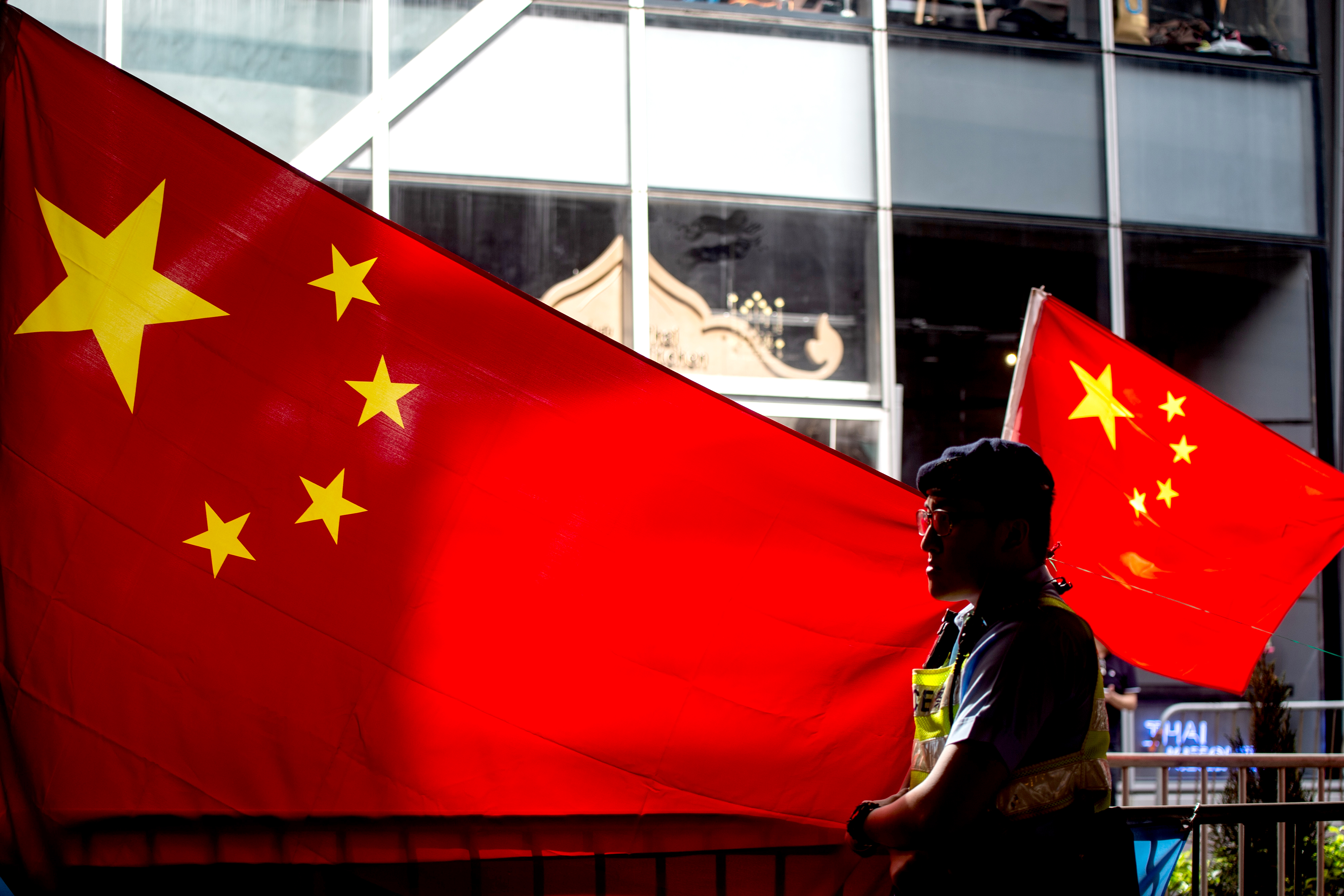China will do whatever it wants in Hong Kong
Here's why the West won't lift a finger to help


A free daily email with the biggest news stories of the day – and the best features from TheWeek.com
You are now subscribed
Your newsletter sign-up was successful
Whenever a story appears day after day in the headlines without becoming the subject of pointed opinion pieces, it is always worth paying attention to. This is usually because there is no facile narrative that can be grafted on to the events. Hence the reason that reports about the recent protests in Hong Kong — and the actually rather tame response from mainland Chinese authorities to what ultimately amounts to sedition — have been greeted with little more than mild expressions of regret.
This is not because we are immune to the fantasies of liberation being expressed by the American flag-waving Hong Kongers. We are addicted to them. Consider the widespread pollyannish support for the so-called Arab Spring and the color revolutions of the last decade, and our bizarre sympathy for nationalist causes from Ireland to Ukraine. The only limiting principle seems to be financial interests. Americans will always make an exception for oppressors who are good at helping us make money, which is why Saddam Hussein and a ragtag band of Afghan tribal chieftains paid the price for the crimes of Saudi nationals.(This is also, I suspect, why nostalgia for the theocratic kingdom of the Tibetan lamas — once a fashionable Hollywood liberal cause — has all but disappeared.)
No country benefits more from our reluctance to shoot inside the financial tent than China. Never mind "China Respecter Man," ubiquitous as he is in American media. The horror aroused by President Trump's trade policies has been as universal as it has been crudely fideistic. Even Trump himself has no interest in actually upsetting the balance of our economic relationship with Beijing, which is why every iteration of his supposed trade plan includes carve-outs for things like "holiday" toys. If he were, he would seize upon videos like this one in order to push for a harder line.
The Week
Escape your echo chamber. Get the facts behind the news, plus analysis from multiple perspectives.

Sign up for The Week's Free Newsletters
From our morning news briefing to a weekly Good News Newsletter, get the best of The Week delivered directly to your inbox.
From our morning news briefing to a weekly Good News Newsletter, get the best of The Week delivered directly to your inbox.
But there are, I suspect, other reasons why we are loath to quarrel with the Chinese. Secretly — or in Trump's case not so secretly — we envy the ability of the authorities in Beijing to pursue their aims without fretting over the boring human messiness of actual politics. We long for a world in which public policy is a kind of computer strategy game — get the carbon graphs down, keep GDP up, and, oh, click here to make these annoying characters disappear forever.
All of which is not to suggest that the protests of the Hong Kongers are especially worthy of our attention. What began as a rather technical question about extradition has become an absurd spectacle. The demands made by protesters are now mostly of the meta variety — calls for investigations of the police response to protests that are supposedly about calls for etc. While Carrie Lam, the aptly titled "chief executive" of the region, frets about Hong Kong's international reputation and tangible threats to its privileges, thousands of citizens are drunk on the Rights of Man. Many protesters already regret their involvement.
As well they should, at least if they understand that the concessions they currently enjoy are Beijing's gift, liable to disappear at any moment. Chinese elites would like to have Hong Kong as a kind of Wall Street-cum-Las Vegas. This is not incompatible with a loss of their liberties. A 1989-style escalation is not going to happen for the very simple reason that no one — on the Chinese mainland, in Hong Kong itself, least of all in London or Sydney or New York — is willing to take things that far.
But suppose it did? No one would lift a finger on behalf of Hong Kong. There would be vague calls for "unity" and "dialogue," but no major power — not the United States or the EU or Japan or Russia — would be moved to meaningful action. This is even more true of business. Industries that can be mobilized against the dark forces of, say, southern and midwestern Republican governors who dare to expand conscience protections to Christians would hardly notice another Tiananmen Square. Google would keep giving away our technology, Hollywood would continue duly to submit its products for censorship, and the rest of us would buy more half-off Christmas lights.
A free daily email with the biggest news stories of the day – and the best features from TheWeek.com
Matthew Walther is a national correspondent at The Week. His work has also appeared in First Things, The Spectator of London, The Catholic Herald, National Review, and other publications. He is currently writing a biography of the Rev. Montague Summers. He is also a Robert Novak Journalism Fellow.
